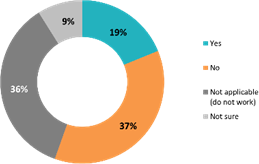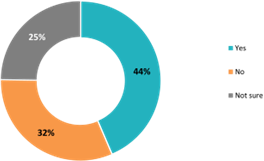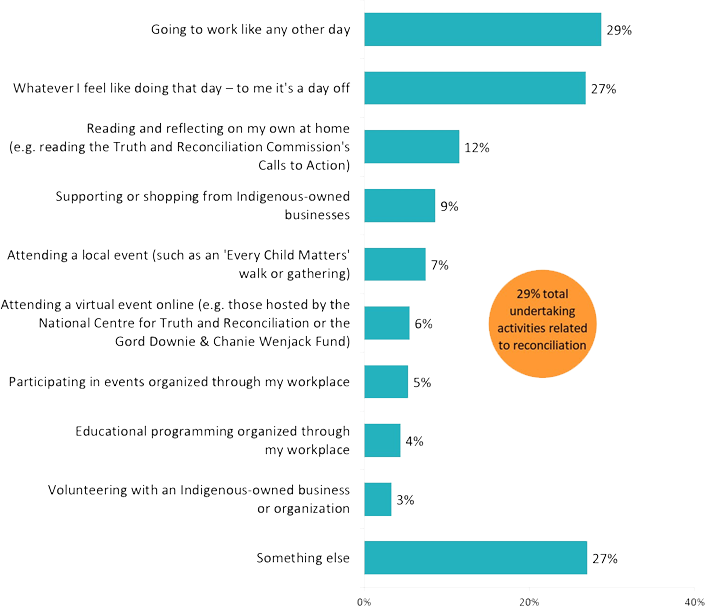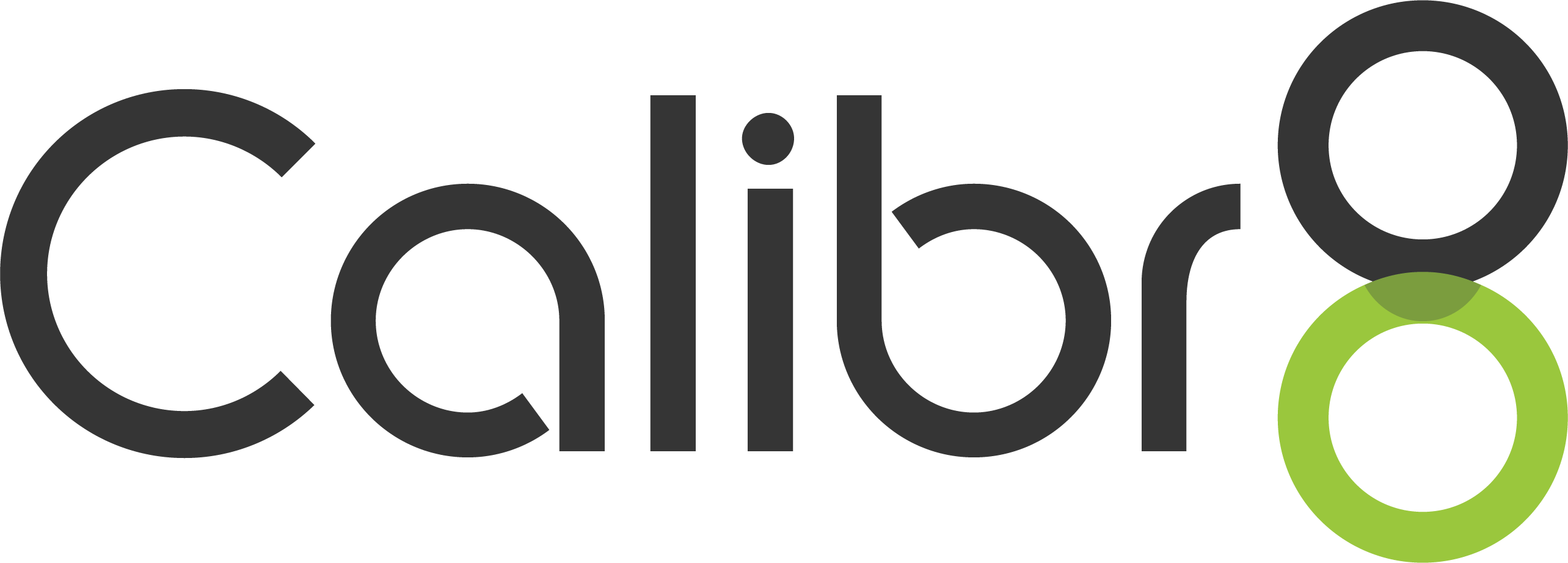Four years after its establishment, the National Day for Truth and Reconciliation continues to prompt discussion across Canada. While the day honors the legacy of the residential school system and the experiences of survivors, their families, and communities, Canadians remain divided on whether September 30 should be observed as a full statutory holiday for all businesses. Understanding these perspectives provides insight into how the day is viewed and the actions Canadians plan to take in support of meaningful reconciliation.
Read time: 4 mins
Key Takeaways
- About half of Canadians feel September 30 should be a full statutory holiday, while a third disagree and a quarter are unsure.
- Support for a mandatory holiday is stronger among Canadians aged 54 and under than those 55+.
- Three-in-ten Canadians plan to work as usual on September 30, another quarter plan to take a day off, and three-in-ten plan to engage in reconciliation-related activities.
- Actions toward reconciliation include attending events, supporting Indigenous-owned businesses, participating in educational programs, reading, or volunteering.
Four years ago, the National Day for Truth and Reconciliation was first observed, a federal statutory holiday established to honor the legacy of the residential school system and the experiences of survivors, their families and communities. However, September 30 is not a statutory holiday in all provinces or territories (BC, Manitoba, PEI, Yukon, NWT and Nunavut all observe a mandatory holiday, while other provinces do not). Wanting to better understand how the Day is viewed by Canadians, we asked a series of questions of residents across the country.
Workplace Closed on September 30th

Results show that approximately half of those who are working say that their workplace will be closed on September 30th. Just under half of the population more generally feels that September 30th should be a full statutory holiday when all businesses should be closed, while a third disagree, and a quarter are not sure. Support for a mandatory holiday is stronger among those aged up to 54 than among those aged 55 and up.
Should National Day for Truth and Reconciliation Be a Statutory Holiday When All Businesses Are Closed?

Turning to what plans Canadians have for Canada’s National Day for Truth and Reconciliation, three-in-ten said they plan to go to work like any other day, while an additional quarter plan to take the Day as a day off. All together, three-in-ten plan to undertake some action towards reconciliation, from supporting or shopping from Indigenous-owned businesses, attending events, pursuing educational programming or reading, or volunteering, with many saying they will be pursuing multiple types of activities.
Plans on September 30th

“It’s concerning that many Canadians still view September 30th merely as a day off, rather than an opportunity to engage meaningfully in reconciliation,” said Margaret Chapman, COO & Partner. “At the same time, it’s encouraging to witness the large number of individuals who are taking action, whether by attending community events, reading and reflecting, or participating in educational programs. Reconciliation is a shared responsibility, and it’s essential that all Canadians have access to the resources and opportunities needed to learn, grow, and contribute to this important work.”
Results are from an online survey conducted in partnership between Narrative Research and the Logit Group. The survey was conducted between September 10 – 12, 2025 with 1,230 Canadians, 18 years of age or older from the Logit Group’s online Canadian Omnibus. Data were weighted based on the 2021 Census, by gender, age, and region to reflect actual population distribution.
FAQs
No, it is mandatory only in BC, Manitoba, PEI, Yukon, NWT, and Nunavut; other regions do not observe it as a statutory holiday.
Just under half of the population supports a mandatory holiday for all businesses.
Canadians plan to attend community events, support Indigenous-owned businesses, pursue educational programming, read, or volunteer.
Yes, support is stronger among those aged up to 54 than among those aged 55 and older.
For more information, please contact:
Margaret Chapman, COO & Partner, Narrative Research – 902.493.3834, mchapman@narrativeresearch.ca or Sam Pisani, Managing Partner, Logit Group – 416.629.4116, sam.pisani@logitgroup.com.
Narrative Research is a non-partisan, 100% Canadian-owned research company, certified as a Women Business Enterprise (WBE). Narrative Research provides clients with state-of-the-art research and strategic consulting services.
The Logit Group is a leading North American data collection and market research execution company headquartered in Toronto, conducting large-scale projects for a variety of well-known research agencies and brands. Logit employs industry-best technologies.








